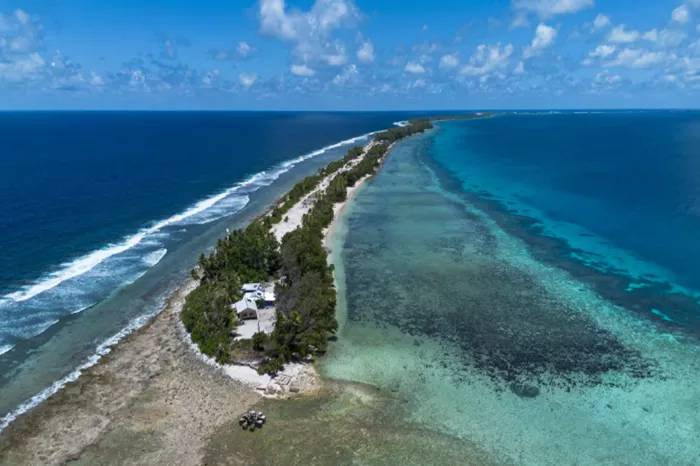During a speech on Thursday at the Commonwealth Heads of Government Meeting (CHOGM), Tuvalu’s Prime Minister Feleti Teo delivered a stark warning regarding fossil fuel expansion, declaring it a “death sentence” for his nation. Addressing the assembled leaders, including King Charles and Australian Prime Minister Anthony Albanese, Teo emphasized, “We will not sit quietly and allow others to determine our fate.”
The speech coincided with the release of a new report from the Fossil Fuel Non-Proliferation Treaty Initiative, highlighting the efforts of the Commonwealth’s “big three” states—Australia, Canada, and the United Kingdom—to expand fossil fuel exports. Although these three countries represent only 6% of the Commonwealth’s population, they account for over 60% of carbon emissions from extraction since 1990.
While Canada and the UK are also significant contributors to climate change through their oil sands and North Sea oil exports, Teo directed particular criticism toward Australia. He noted that Australia ranks second only to Russia in emissions from fossil fuel exports and leads the world in coal export projects, with a staggering 61% of the global total.
The Urgent Threat of Climate Change
For Tuvalu and many other small Pacific nations, climate change is an existential threat. Rising sea levels and saltwater intrusion are already forcing communities to consider migration or retreat. Teo articulated the moral obligation of Australia to ensure its actions do not undermine its climate commitments, highlighting the contradiction between Australia’s pledge for net-zero emissions by 2050 and its ongoing fossil fuel expansion.
This year, the Falepili Union treaty between Australia and Tuvalu came into force, granting some migration rights to Tuvaluans and establishing a security agreement. Teo indicated he may use this treaty to pressure Australia to align its fossil fuel activities with its climate commitments.
Pacific Island Nations Take a Stand
Tuvalu’s diplomatic pressure forms part of a broader effort by Pacific island nations to assert themselves in the climate debate, moving from victimhood to proactive advocacy. Vanuatu’s climate envoy, Ralph Regenvanu, echoed these sentiments, urging Commonwealth nations to avoid sacrificing vulnerable nations for short-term economic gains.
Vanuatu and Tuvalu have been at the forefront of a campaign for a fossil fuel non-proliferation treaty, aiming to halt the expansion of fossil fuels. Currently, twelve other nations, including Fiji, Solomon Islands, Tonga, and the Republic of Marshall Islands, have joined this initiative.
Commonwealth Meeting Highlights
The CHOGM in Samoa marks the first time a Pacific Island nation has hosted Commonwealth leaders, with notable absences including Indian Prime Minister Narendra Modi, South African President Cyril Ramaphosa, and Canadian Prime Minister Justin Trudeau. Climate change emerged as a central issue, overshadowing other discussions, such as calls for reparations from former British colonies.
The meeting serves as a precursor to the upcoming COP29 climate conference in Baku, Azerbaijan, where Pacific nations are focused on climate finance consensus. Australia is also vying to host the 2026 COP31 conference, with its bid competing against Türkiye. Observers suggest Australia is in a favorable position, but the country faces ongoing pressure from Pacific states to align its fossil fuel practices with its climate promises.
Navigating Domestic and Regional Pressures
As Australia confronts these challenges, the government must address the balance between regional demands for a phase-out of coal and gas exports and domestic pressures to maintain jobs and economic growth. The upcoming federal election may also influence these discussions, with a potential A$200 million boost for the COP host city being a significant incentive.
In Apia, efforts to raise awareness of climate issues included a guided walk through a mangrove reserve for King Charles, where local leaders showcased the impacts of rising king tides, now double what they were 20 to 30 years ago.
The pressing questions for Australia remain: How will it navigate the complexities of phasing out fossil fuel exports while supporting local economies? Can it be a partner of choice in the Pacific while continuing its fossil fuel extraction activities?
These critical issues may not find resolution during the current meeting, nor potentially even with the next federal government, but they will undoubtedly remain at the forefront of discussions regarding the future viability of Tuvalu and similar nations facing the realities of climate change.
Related topic:

